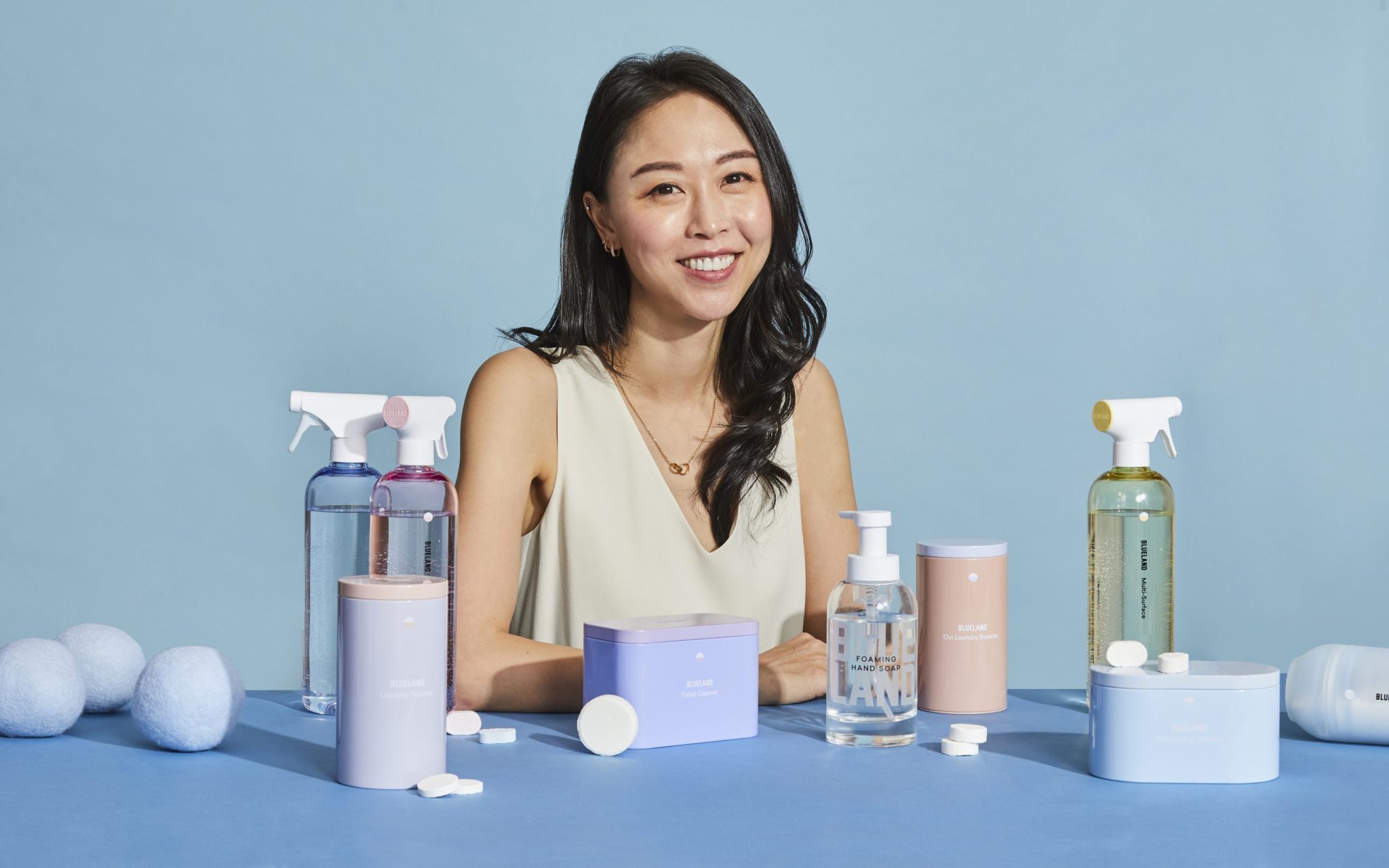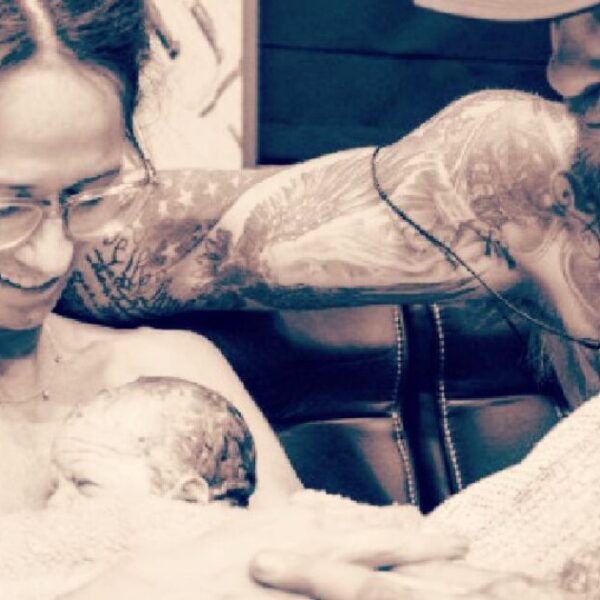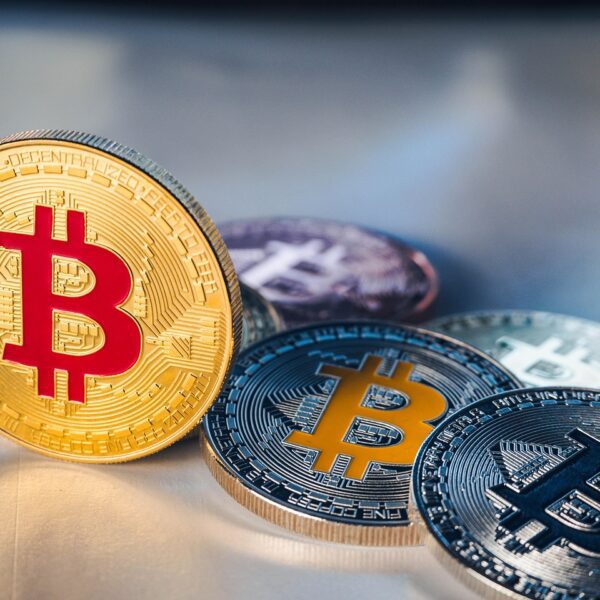
As each summer gets hotter and microplastics run through our rivers, more people have become conscious of how they can live more eco-friendly. One CEO leading a $55 million company chose a radical act of sustainability.
Before launching plastic-free cleaning products company Blueland in 2019—backed by Gwyneth Paltrow and Justin Timberlake—Sarah Paiji Yoo lived a zero-waste lifestyle. In the pursuit of creating no trash, the serial entrepreneur ditched take-out coffee, plastic utensils, food packaging, bottled body wash, and even throw-away diapers.
“I went zero-waste with my family for about two and a half years. But during all of that, it wasn’t lost on me that the impact my family was having was minuscule, teeny tiny,” Yoo, cofounder and CEO of Blueland, tells Fortune. “And that’s where I started to get this feeling, ‘Oh, I could have much greater impact if I give other people better choices.”
Her husband and two kids ditched non-reusable items like bagged chips or coffee to-go cups. She even went as far as using cloth diapers and going the extra mile to shop at farmers markets.
Her zero-waste habits for 2.5 years: reusable diapers, utensils, coffee mugs
Yoo says her choice to ditch diapers showed how truly committed she was to the zero-waste cause—but it took a lot of work to change the routine habits of her life.
“I started carrying around reusable everything: bags, coffee mugs, utensils, straws,” the 41-year-old entrepreneur says. “I switched to bar soaps and shampoo bars instead of products in plastic bottles. Admittedly, the bars were a harder sell for my husband.”
The Blueland CEO also began composting, and shopped local and at green markets to get her food for the week. Those two and a half years made her question her consumption, the convenience of plastic, and if she really needed that waste.
“That kind of thinking extended into every area of my life, and still shapes how I make decisions today,” Yoo says. “That experience helped me raise the bar for what I expect from the products I bring into my home—and ultimately, what contributed to my desire to start Blueland.”
By founding Blueland, Yoo feels her business has finally given customers eco-friendly options by selling laundry and dishwasher detergents, toilet cleaner, and soap in plastic-free packaging. By 2022, the company made over $100 million in lifetime sales and profitability; and now, its products are flying off the shelves and into grocery bags every 10 seconds.
“When we were getting started, plastic was a topic that was still more partisan. It did break down by party lines,” Yoo says. “Versus today, it really has become a lot more universal, which is exciting.”
Turning the habit into a bigger action: Blueland
It’s a crushing realization to know that real climate and environmental action has to be consistent and popular to make progress. Gen Z are even pursuing the cause at work, with around 45% of the two youngest generations of employees having already left their job or planned to over climate concerns, according to 2024 data from Deloitte.
But one person’s eco-friendly actions are a drop in the bucket of what has to be done, and entrepreneurs like Yoo are making it easier for them to go green when it comes to daily chores.
The Blueland CEO came to the realization that getting a lot of people on board with being zero-waste wasn’t realistic. So in research with her cofounder John Mascari, they found that the most impactful place to start was reducing plastic packaging, which took up the largest category of new plastic waste.
In the last six years, Blueland has raised over $55 million, with 95% funded by women investors. Notable backers include Gwyneth Paltrow, Justin Timberlake, Adrian Grenier, former Sweet Green CEO Nicolas Jammet, Rent the Runway cofounder Jennifer Fleiss, and Thrive Market CEO Nick Green.
It has sold over 10 million products online and off the shelves of stores like Whole Foods, Costco, and Target. But helping people understand the mission was one half of the journey.
“We spent a lot of time when we launched in 2019 talking about the ‘why?’ Like, ‘Why should people care? Why is single-use plastic bad? Why reuse?’” Yoo says. “The end goal was purely just to build a successful business. So that education was really gratifying for me.”















